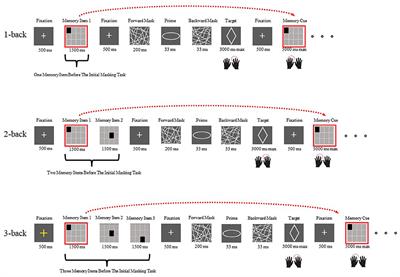The Essential Role of Executive Attention in Unconscious Visuomotor Priming
Many reports have emphasized that unconscious processing demands attention.However, some studies were unable to observe a modulation of attentional load in subliminal visual processing.

. We proposed that the paradoxical phenomena could be explained based on whether the mental workload task was involved in central executive processes. In two experiments, by combining a masked shape discrimination task with an N-back task, executive attention availability for masked visuomotor processing decreased as the N-back task demand increased. We observed that unconscious visuomotor priming diminished with increasing executive attention load in Experiment 2; however, this pattern did not occur in Experiment 1. Further analysis verified that in Experiment 1, the role of the central executive in unconscious visuomotor priming was eliminated by the accuracy-speed trade-off since the higher load spatial N-back tasks with larger memory set sizes, compared with higher load verbal N-bask tasks, were quite difficult for the subjects to manage.
Therefore, our results demonstrated that central executive load modulates unconscious visuomotor priming and that this modulation can be weakened by task difficulty. Collectively, by emphasizing the essential role of executive attention in subliminal visuomotor priming, the present work provides a powerful interpretation of prior debates and develops extant attention capacity limitations from the realm of consciousness to that of unconsciousness.
Read the full article at the original website
References:
